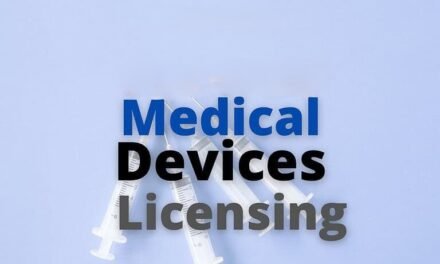
A list of technologies was supported under ICMR-MDMS manufacturing of medical devices?

The Indian Council of Medical Research (ICMR), through the Medical Device & Diagnostic Systems (MDMS) Division, supports the development and manufacturing of medical devices in India, particularly those that align with public health priorities. This includes funding and promoting the research and development (R&D) of medical technologies that cater to unmet healthcare needs in the country. Under the ICMR-MD MS program, several medical device technologies are supported, ranging from diagnostic devices to therapeutic equipment.
Technologies Supported under ICMR-MDMS for Manufacturing Medical Devices:
- Point-of-Care Diagnostics:
- Technologies: for rapid diagnostic tests (RDTs), including biosensors, microfluidic devices, and lateral flow assays for diseases such as malaria, tuberculosis, HIV, COVID-19, dengue, diabetes, and cancer.
- Portable diagnostic devices: for early detection and monitoring of chronic diseases.
- Development of electrochemical sensors and immunoassays: to provide quick results in remote areas with limited infrastructure.
- Medical Imaging Devices:
- Low-cost diagnostic imaging devices: such as X-ray, ultrasound, and ECG machines tailored for low-resource settings.
- Portable and mobile imaging solutions: which are essential for rural healthcare delivery and emergency settings.
- Image processing technologies: for better diagnosis and treatment planning in radiology and oncology.
- Wearable Medical Devices:
- Wearable sensors: for continuous monitoring of blood glucose, blood pressure, heart rate, and respiratory parameters.
- Smart wearable devices: for real-time tracking of chronic diseases like diabetes, hypertension, and cardiac diseases.
- Smartwatches and patch sensors: that monitor vital signs and alert healthcare providers in case of emergencies.
- In-Vitro Diagnostic (IVD) Devices:
- Technologies: for the development of self-testing kits for infectious diseases and biomarker detection.
- Gene amplification technologies: such as PCR (Polymerase Chain Reaction) for genetic testing and infectious disease diagnostics.
- Biosensor-based devices: for detecting infectious pathogens in blood, urine, or other bodily fluids.
- Medical Implants:
- Orthopedic implants: like joint replacements, spinal implants, and fracture fixation devices.
- Dental implants: using advanced biomaterials and techniques.
- Development of bioresorbable stents and vascular grafts: for cardiovascular applications.
- Prosthetics and assistive devices: for disabled persons.
- Therapeutic Medical Devices:
- Electrotherapy devices: such as TENS (Transcutaneous Electrical Nerve Stimulation) units for pain management.
- Cardiac devices: including pacemakers, defibrillators, and cardiac monitors.
- Dialysis machines: for patients with kidney disease.
- Surgical tools: for minimally invasive procedures (e.g., laparoscopic surgery tools, robotic surgery systems).
- Bioinformatics and AI-based Technologies:
- Artificial Intelligence (AI) and machine learning (ML): solutions for medical image analysis, diagnostic algorithms, and predictive healthcare.
- AI-powered software: for enhancing diagnostic accuracy in radiology and pathology.
- Big data analytics and cloud-based healthcare solutions: for improving the management of patient data and healthcare systems.
- Nanotechnology in Medicine:
- Nanomaterials: for drug delivery systems and diagnostic applications.
- Development of nanoparticles: for targeted treatment of diseases such as cancer and infectious diseases.
- Nanosensors: for early detection of biomarkers and pathogens in blood or urine samples.
- Sterilization and Disinfection Technologies:
- UV-C sterilization systems: and other innovative methods for disinfection of medical devices.
- Development of autoclaves, sterile packaging systems, and devices to prevent cross-contamination in healthcare environments.
- Affordable Assistive Technologies:
- Hearing aids, artificial limbs, and mobility aids: designed for accessibility and affordability in low-income settings.
- Development of smart prosthetics and assistive technologies: to enhance the quality of life for patients with disabilities.
- Biomaterial-based Medical Devices:
- Development of biocompatible materials: for implants and prosthetics, including titanium, ceramic, and polymer-based materials.
- Biodegradable materials: for drug delivery and wound healing.
- Technologies: for the creation of tissue-engineered scaffolds for regenerative medicine applications.
- Infectious Disease Control Devices:
- UV-based disinfection systems, air purifiers, and water filtration devices: for infection control in hospitals and clinics.
- Development of biocidal coatings: for medical devices to prevent infections and contamination.
- 3D Printing in Medical Device Manufacturing:
- 3D printing: technology for creating custom prosthetics, implants, and surgical tools.
- Bio-printing: to create complex tissue structures or to develop customized implants for specific patients.
ICMR-MDMS: Supporting Innovation:
Under the ICMR-MDMS, support is provided not just for the development of medical devices but also for:
- Clinical trials: for medical devices to ensure efficacy and safety.
- Standardization and regulatory compliance: with national and international norms (e.g., ISO 13485, FDA approval).
- Technology commercialization and technology transfer: to ensure that innovations can be scaled up and reach the market.
The ICMR-MDMS initiative supports a wide range of technologies, from diagnostics and imaging to wearable devices and therapeutic devices, with the goal of promoting the development and manufacture of affordable, high-quality medical devices in India. This initiative fosters innovation, ensures quality assurance, and contributes to the Make in India initiative by promoting self-reliance in the healthcare sector. It also plays a vital role in strengthening India’s position as a global hub for medical device manufacturing, particularly in emerging technologies like AI, IoT, nanotechnology, and 3D printing.




























